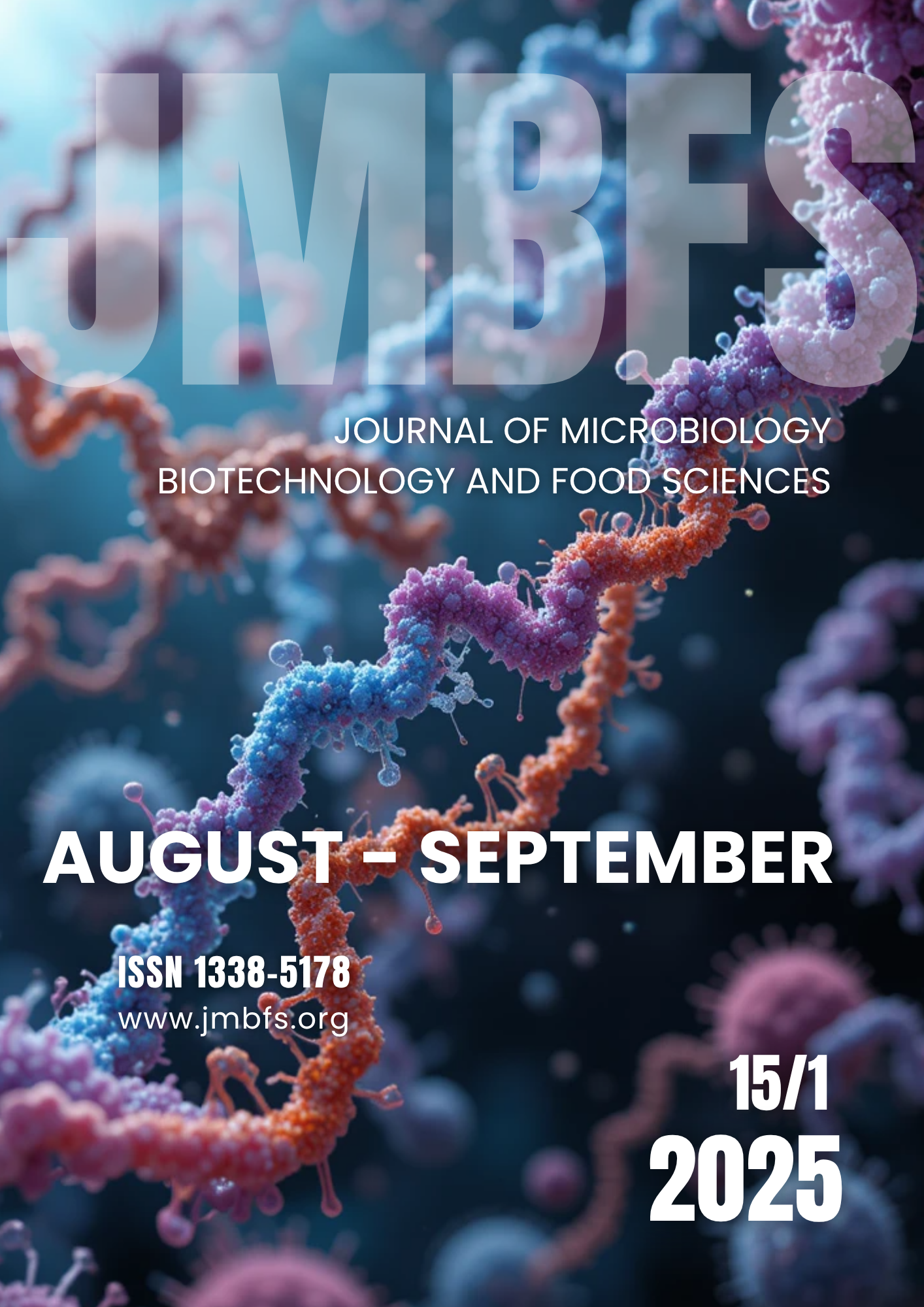OPTIMIZATION OF ENZYMATIC PRODUCTION OF RHIZOPUS OLIGOSPORUS USING RESPONSE SURFACE METHODOLOGY
DOI:
https://doi.org/10.55251/jmbfs.10790Keywords:
Rhizopus oligosporus, Response surface methodology, alkaline protease, acid protease, lipase, carbohydraseAbstract
In the present study, we aimed to optimize the levels of abiotic factors involved in maximizing the production of extracellular fermentative Rhizopus oligosporus (R. oligosporus) enzymes using substrates such as soy and dextrose. In the first trial, we determined the effect of environmental factors on R. oligosporus growth. The redundancy analysis showed that three levels, namely temperature (X1), carbon dioxide concentration (CO2; X2), and light intensity (X3), which accounted for 34.3% of the variation observed in the organoleptic characteristics of micelles, including color and spore quantity. In the second trial, a three-level and three-factor Box–Behnken design with one replicate was used to study the interaction of the significant abiotic factors (X1, X2, and X3) with alkaline protease (AlkP; Y 1), acid protease (AcP; Y2), lipase (LiP; Y3), and carbohydrase (Cbh; Y4). Three levels, namely temperature (28, 30, and 32 °C), CO2 concentration (385, 436, and 494 ppm), and light intensity (0, 53, and 100 lux), were optimized using the response surface methodology. Analysis of variance showed that X1 and X3 were significant factors for the yield of AlkP, AcP, and Cbh. X1 and X2 significantly affected the LiP yield. The desirability surface plot indicated that the optimal yields of AlkP, AcP, and Cbh (0.557, 0.387, and 0.098 U/mg, respectively) were recorded at 25 °C and 0 lux. A LiP yield of 0.0752 U/mg was obtained at 25 °C of temperature and 494 ppm of CO2 concentration. Taken together, the present study provides conditions for the optimal production of R. oligosporus enzymes using soy and dextrose as substrates. The present data can be used to improve soy fermentation in the search for protein-rich foods with excellent digestibility.
Downloads
Downloads
Published
How to Cite
Issue
Section
License
Copyright (c) 2023 Mariel Gullian Klanian, Maria José Sánchez Solís, Silvana Osorio Di Gianluca

This work is licensed under a Creative Commons Attribution 4.0 International License.
All papers published in the Journal of Microbiology, Biotechnology and Food Sciences are published under a CC-BY licence (CC-BY 4.0). Published materials can be shared (copy and redistribute the material in any medium or format) and adapted (remix, transform, and build upon the material for any purpose, even commercially) with specifying the author(s).





